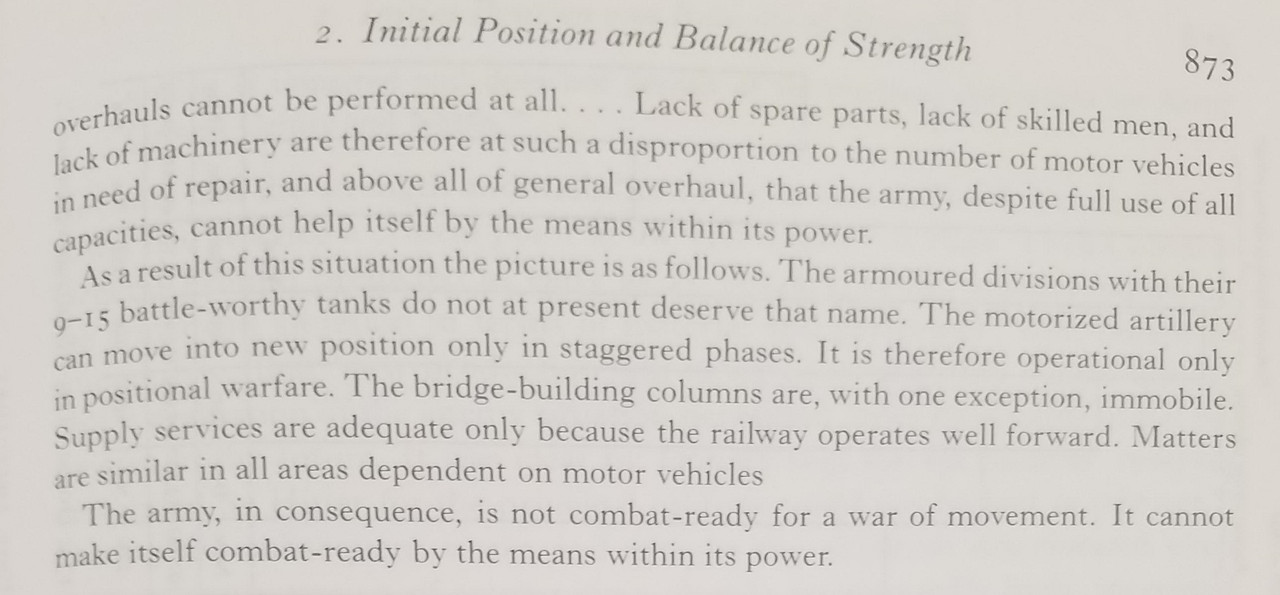1 That Germany could have produced more rolling stock (in less than a year between the decision for and the start of BarbarossaTheMarcksPlan wrote: ↑23 Jul 2019, 04:00ATTENTION FORUMERS...
Just as Germany could have built different stuff (e.g. battleships instead of tanks, more bombers and fewer fighters, more origami), so could Germany have produced more rolling stock.
This should be obvious from the fact that Germany implemented a plan to quintuple its production of rolling stock in early 1942. Economic conditions in early 1942 were barely different from in 1940 (indeed in many ways they were worse).
Any statement about the inability to supply a larger army by rail must explain why Germany could not have built a larger rail fleet. Such an argument must provide figures for the cost of more rail production and an argument for why such cost would have been prohibitive pre-Barbarossa when it was easily managed immediately after Barbarossa.
This is particularly true regarding arguments about distance of rail supply: While there are other constraints on moving more supplies (e.g. capacity in the "Polish gap"), moving goods farther requires primarily more rolling stock. Rolling stock was cheap; even the emergency building program undertaken in early 1942 consumed ~1% of Germany's munitions budget (the program was placed under a military priority heading).
To repeat once more, the heart of this ATL is not assuming a risibly brief timeline for Barbarossa. Absent that assumption, a competent German planning arm (i.e. not OTL Halder and crew) would have immediately realized that supporting millions of men in the east would overtax Germany's rail transport infrastructure. A competent planning arm would have taken steps to address this painfully foreseeable obstacle. Given the OTL cost of Germany's post-Barbarossa rolling stock program, addressing the rail lift issue seems unlikely to have been cost-prohibitive in 1940-41 or earlier. To repeat once more, Germany had slack in its economy up to at least 19% of GDP even in 1942.
2 I like to see the proof that Germany decided to quintiple its production of railway rolling stock and that this was successful :FYI Germany had 28630 locs, do you say that it was planning to to produce 112000 locs ?
3 The claim that to move goods farther,it was needed to have more rolling stock is very primitive and does not prove an elementary knowledge of this problem .
4 That rolling stock was cheap is not only questionable but also meaningless .
It is obvious that you have failed ( better : refused ) to consult the thread by Der Alte Fritz,because it would discard your ATL .
You have done the same with Time and Distance, who both are essential in wartime .
